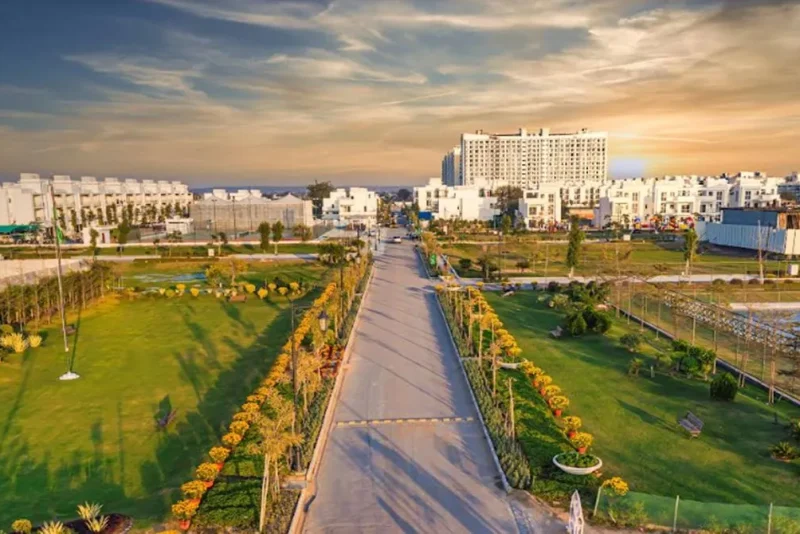The value of owning a home is underpinned during the Covid-19 crisis and it gained momentum on grounds of safety and stability it offered.
The Indian real estate has undergone a system reboot with structural policy reforms like The Real Estate (Regulation and Development) Act (RERA), GST, insolvency, and bankruptcy simultaneous to demonetisation and Infrastructure Leasing & Financial Services (IL & FS) fiasco. As a result, the market was sluggish with a liquidity crisis, subdued demand, muted investment, rising unsold inventory, and prices that stood stagnant for a long time.
For the expatriate Indian, the market scenario skewed favourably with RERA that ensured transparency, accountability, and financial discipline. Thus, now seems to be the right time to invest in residential real estate with attractive pricing and less volatility compared to other asset classes.
“The rising geo-political uncertainties, job insecurity also fuelled the demand to invest in Indian real estate- an asset close to home which also offers assured rentals from the branded developers making it a win-win scenario,” added Dr Hiranandani.
This demand increase generated post-Covid-19, aided by rock bottom housing prices and historically low-interest rates on home loans, has helped residential real estate developers to successfully navigate through the tough economic situation caused by this pandemic. — Dhruv Agarwala
Real estate continues to be the preferred asset class for investment in the wake of the Covid-19 pandemic, but the majority of homebuyers want discounts along with flexible payment options as an incentive, according to the Housing.com and Naredco survey. The real estate portal conducted the survey between January to June this year of more than three thousand consumers.
According to the survey findings, real estate is the preferred mode of investment for 43 per cent (35 per cent last year) of respondents, followed by stocks 20 per cent (15 per cent last year), fixed deposit 19 percent (22 per cent last year) and gold 18 per cent (28 per cent last year).
“The health crisis has reinforced the importance of homeownership across the world. As a result, the residential real estate market is not only witnessing fresh demand from first-time homebuyers but also from a lot of consumers who are upgrading to bigger apartments,” said Dhruv Agarwala, Group CEO, Housing, Makaan, and PropTiger.
“This demand increase generated post-Covid, aided by rock bottom housing prices and historically low-interest rates on home loans, has helped residential real estate developers to successfully navigate through the tough economic situation caused by this pandemic,” Agarwala added.
Among other key findings, the majority of the respondents (71 per cent) feel that flexible payment plans and discounts will provide much-needed financial aid during current times and drive them to make purchase decisions.
Strong housing sales in Maharashtra’s two key markets — Mumbai and Pune — suggest that stamp duty reduction by the state government did play an important role in stimulating demand during September 2020 to March 2021 period.
“Builders’ margins for under-construction properties have reduced due to increase in construction costs and land prices in some cities. Therefore, there is little scope for a reduction in basic selling price (BSP). However, builders have been offering flexible payment plans and discounts in some cases to attract customers,” said Mani Rangarajan, Group COO, Housing, Makaan, and PropTiger
“The housing market has shown great resilience during the second wave of Covid infections with demand and supply both growing during April-June 2021 compared to the same period last year. The survey shows that buyers’ sentiments have improved since June and people have started searching properties with renewed vigour. We expect demand to remain strong during the festive season,” Rangarajan added. “The state governments should reduce stamp duty on registration of properties to encourage homebuyers.”
The survey found that economic and income outlook for the coming six months is more optimistic as compared to H1 2020. The sentiments have been less impacted this year given that uncertainty is lower as compared to last year. Also, lockdowns have been more selective along with vaccine availability.
“While the second wave did see homebuyers shying away from making a purchase, subsiding coronavirus cases has seen buyers resume their home searches a lot quicker than after the previous lockdown period,” the report said.
Anupam Rastogi, Co-founder and Head of NRI Business at Square Yards, said: “The Indian real estate industry had an optimistic run in H1 2021, with the sector braving the second covid wave with aplomb backed by digital home buying, recalibrated business plans by developers, and bullish investor sentiments, making handsome amends for the disappointment that was 2020. New launches in the first half of 2021 in top six cities trumped previous year’s H1 launches recording a rise of anywhere between 50 per cent to 125 per cent.”
Sales also spiked across all top real estate markets driven by a heightened need for homeownership and robust buyer confidence in the sector. A raft of reforms including realistic repo rates, stamp duty waiver, and circle-rate cuts kept the housing sales momentum brewing throughout the Jan-Mar quarter with lucrative offers from developers sweetening deals further. Even though the momentum was hit by the second wave during the April-June 2021 quarter, the cumulative impact of the numbers achieved in Q1 meant that sales figures for H1 2021 significantly exceeded that of H1 2020.
The spike in sales was more prominent in the state of Maharashtra, thanks to the stamp duty waiver. Top realty markets in the state such as MMR and Pune registered a yearly growth of 80 per cent to 155 per cent in residential transactions.
With an accelerated Covid-19 inoculation drive, measured reopening of the economy, and recall of stamp duty cuts in Karnataka and Maharashtra, the home buying demand and sales trajectory has moved north post-June, signaling a positive home buying sentiment.
“NRIs can leverage this opportunity to buy a property back home as a financial investment and sentimental attachment with a vision of settling in the future. Increased transparency, stable property rates, depreciation in the Indian rupee, reduced home loan rates, security of real estate investment in India, strong growth prospects and the option of digital home buying, have made property investment highly conducive and a good bet for NRI homebuyers.”
While India’s real estate market makes a certain move for investment due to low prices, increased transparency, and digital progression, the fact that the world is coping with the pandemic is an opportunity in itself. Investment in real estate has been often regarded as a risk-free option given the tangible nature of the asset and over time the property ensures a genuine appreciation value along with assured ROI. Today, in the post-pandemic world processes have rapidly moved to online modes offering investors much transactional ease, even if they are across borders.
Shraddha Kedia-Agarwal, Director, Transcon Developers, also pointed out: “The recent volatile stock market and the currency benefit of the rupee-dollar exchange have made it favourable for the NRIs to invest in Real Estate in India. A large section of non-residential Indians, previously aligned to the stock market as primary investment policy have shifted more to real estate as a form of long-term investment. Also, the rupee’s decline in value against the dirham, heavy returns, good rental, improving infrastructure are the additional key drivers. The Indian government has recalibrated its approach towards remobilizing the economy and introduced various reforms to ensure adequate liquidity in the system such as keeping the interest rates low, additional liquidity support to NBFC and HFCs. The residential real estate market in India has become more lucrative for ultra-high net-worth individuals (UHNIs) and NRIs as a result of the increased transparency and ease in investment norms. The new class of ultra-rich people is on a buying spree of luxury homes in global cities like Mumbai, Bengaluru, etc. With vaccination drives in advanced stages in most countries, and a huge part of the vulnerable population vaccinated, the situation is likely to return to normal by the end of the year. With RERA ensuring transparency and laws allowing 100 per cent FDI in construction, Indian real estate is witnessing sharp investment infusions from NRIs. The Indian markets are proving their grit and potential, it is now time for NRIs to decide if they want to benefit from India’s future potential.”
The rising geo-political uncertainties, job insecurity also fuelled the demand to invest in Indian real estate — an asset close to home, which also offers assured rentals from the branded developers making it a win-win scenario. — Dr Niranjan Hiranandani
Echoing the similar positive sentiment, Ram Naik, Executive Director, The Guardians Real Estate Advisory, said: “The current market scenario augurs well for the NRI and HNI communities that are looking for investments at attractive valuations. The depreciating rupee has also created lucrative long-term investment opportunities for NRIs, especially in the real estate sector. We have also seen eagerness amongst NRIs to make the most of the lucrative offers from developers in line with the factors prevalent in the market today. These factors also suit the end-users and it is they who are making the most of the low home loan rates along with attractive payment plans by the developers. The turn of events due to the pandemic and the subsequent lockdowns have also prompted developers to begin easing the purchase process for customers. The current scenario, therefore, augurs well for NRI investors who typically have larger funds to invest upfront and are attracted by today’s affordable pricing, handsome rental yields, and a favourable investment climate in India. And this interest will only continue to rise as homes have now become a priority for NRIs towards their aged parents or for their own retirement in the future.”— sandhya
Source : khaleej time




